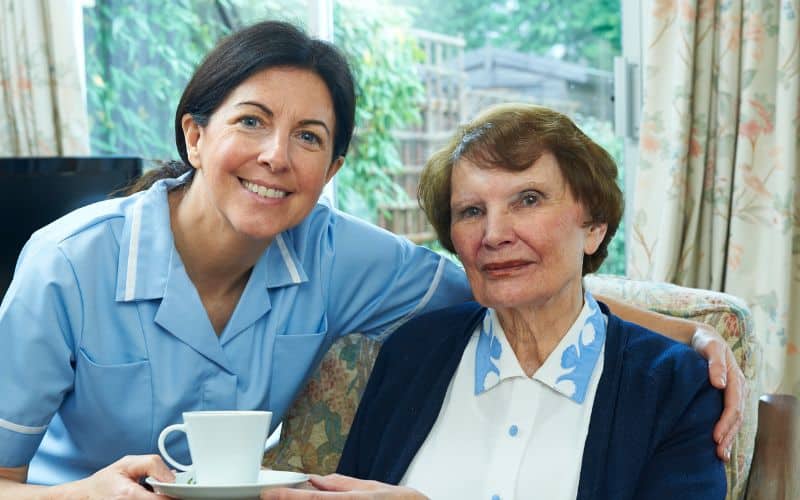


It can be difficult for seniors to live at home alone. They may need an extra hand to rely on as they age. Someone to make them feel less lonely and help manage day-to-day tasks. However, there is only so much time children can dedicate to their aging parents while balancing other responsibilities. If this situation sounds like yours, you should consider companion care. This type of in-home care gives you the reassurance your loved one does not have to face the mental and physical health risks of being socially isolated at home.
Companion Care focuses on providing emotional support and companionship for aging adults who are healthy and want to live independently at home. However, companion caregivers can also assist with routine activities that can be difficult for seniors to do on their own such as grocery shopping, preparing meals and housekeeping. The goal of companion care is to:
Companion care focuses on both social and physical aspects of care to make life easier and safer for the elderly at home.
Live-in companion care entails 24-hour shifts by one or more caregivers. This service is ideal to keep a senior living in their home for as long as possible. A live-in caregiver typically helps with meal preparation, grooming, house cleaning, bathing, and transportation to appointments.
Unlike live-in care, in-home care usually entails shorter visits with specific goals in mind whether it’s meal preparation, transportation, or assistance with bathing. In-home companion care also involves well-person checks, which is when a family member, friend, etc. checks in on their loved one to make sure they’re okay and well.
Hospice has volunteers to visit and help a senior at home. They also can help run errands and take them to appointments. Home Health Aids are also offered for personal needs and respite visits.
Religious-based companion care: If your loved one has been involved in a religious community, search within that group, they may offer companion care.
Companion Caregivers offer services to help your loved one avoid the downsides of social isolation. Seniors heavily experience social isolation and a friend can really make a difference in their well-being. They can act as a friend to your loved one whether it’s by being their partner in their favorite activity, accompanying them to appointments and other outings, or just engaging in friendly conversations. Research shows that social stimulation can help in holding back the effects of dementia or Alzheimer’s. Other services companion caregivers assist with include:
Assess your elderly family member’s situation and discuss what type of caregiving service they would benefit from. 1+1 Cares provides more information on what to expect from in-home care and how to hire a caregiver.
1+1 Cares is a referral agency that works for clients and caregivers. We match caregivers with clients and inform them of your requirements. We work for you so you and your loved one can have a safe, enjoyable caregiving experience. Get Care today.
